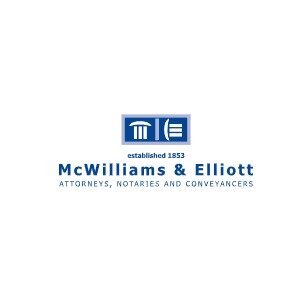Best Nonprofit & Charitable Organizations Lawyers in South Africa
Share your needs with us, get contacted by law firms.
Free. Takes 2 min.
Or refine your search by selecting a city:
List of the best lawyers in South Africa
About Nonprofit & Charitable Organizations Law in South Africa
Nonprofit and charitable organizations play a vital role in South African society, addressing a variety of social, economic, and environmental challenges. The country has a robust legal framework supporting these entities, primarily governed by the Nonprofit Organisations Act 71 of 1997 and supplemented by laws relating to taxation and corporate governance. These organizations encompass a wide range of entities including voluntary associations, trusts, and nonprofit companies (NPCs). Each type of organization has its own legal requirements and benefits, especially in terms of tax exemptions and donor incentives.
Why You May Need a Lawyer
There are several situations where seeking legal assistance may be beneficial for those involved with nonprofit and charitable organizations in South Africa. Common scenarios include:
- Establishing a new nonprofit organization and ensuring compliance with all legal requirements.
- Understanding the tax-exempt status and addressing tax compliance issues.
- Navigating legal obligations when managing donations or grants.
- Resolving disputes within the organization or with third parties.
- Ensuring compliance with corporate governance standards.
- Drafting and reviewing contracts or legal documents related to fundraising and operations.
Local Laws Overview
The legal landscape for nonprofits in South Africa is shaped by several key laws. Here are the most pertinent ones:
- Nonprofit Organisations Act 71 of 1997: Provides the framework for establishment, registration, and accountability of nonprofits.
- Income Tax Act: Deals with tax exemptions for Public Benefit Organizations (PBOs) and provides for deductions on donations.
- Companies Act 71 of 2008: Regulates nonprofit companies, including aspects of incorporation, management, and compliance.
- Trust Property Control Act: Applies to nonprofit trusts, focusing on the control and management of trust property.
Frequently Asked Questions
What are the benefits of registering as a nonprofit organization in South Africa?
Registering provides legal recognition, potential tax exemptions, and enhances credibility with donors and sponsors.
How can my organization qualify as a Public Benefit Organization (PBO)?
Your organization must operate for specific public benefit activities as defined in the Ninth Schedule of the Income Tax Act and meet additional criteria set by the South African Revenue Service (SARS).
What is the difference between a nonprofit company, a trust, and a voluntary association?
Each has its own formation requirements and governance structures. A nonprofit company is a legal entity similar to a business corporation, a trust involves a legal arrangement where trustees manage assets, and a voluntary association is a group formed by agreement.
Are donations to my nonprofit organization tax deductible?
If your organization is registered as a PBO, donations to it may be tax deductible for donors, subject to certain conditions.
What is required to maintain tax-exempt status?
Compliance with reporting obligations, maintaining proper records, and ensuring operations align with public benefit activities are essential.
Can a nonprofit organization engage in commercial activities?
Yes, but any income must be used to further the organization’s objectives, and should align with its stated mission.
What are the reporting obligations for registered nonprofits?
Registered nonprofits must submit annual financial statements and other required reports to the Department of Social Development and SARS.
Can board members or directors be paid for their service?
Typically, board members serve voluntarily, but they may be reimbursed for expenses or compensated for services provided outside their board duties.
How can disputes within a nonprofit organization be resolved?
Most disputes can be resolved internally through mediation or arbitration. In some cases, legal action may be necessary.
What governance structures are required for nonprofits?
Governance structures vary depending on the type of nonprofit but often include a board of directors or trustees responsible for overseeing operations and ensuring compliance.
Additional Resources
To enhance your understanding and management of nonprofit organizations in South Africa, consider consulting the following:
- South African Department of Social Development: Offers resources and guidance for nonprofits.
- South African Revenue Service (SARS): Provides tax guidance and support for PBOs.
- Local legal aid clinics or law firms specializing in nonprofit law.
- Nonprofit organizations such as the Nonprofit Network or Community Chest of South Africa, which offer support and resources to organizations in the sector.
Next Steps
If you find yourself in need of legal assistance regarding nonprofit and charitable organizations in South Africa, consider the following steps:
- Identify the specific legal issue or area where assistance is required.
- Gather relevant documents and information related to your organization and legal needs.
- Contact a law firm or attorney specializing in nonprofit law for a consultation.
- Consider reaching out to professional associations or networks that may offer pro bono legal assistance.
- Utilize online legal resources or guides specific to South African nonprofit law to educate yourself further.
With the right legal guidance, you can ensure your nonprofit organization operates within the legal framework and maximizes its impact in the community.
Lawzana helps you find the best lawyers and law firms in South Africa through a curated and pre-screened list of qualified legal professionals. Our platform offers rankings and detailed profiles of attorneys and law firms, allowing you to compare based on practice areas, including Nonprofit & Charitable Organizations, experience, and client feedback.
Each profile includes a description of the firm's areas of practice, client reviews, team members and partners, year of establishment, spoken languages, office locations, contact information, social media presence, and any published articles or resources. Most firms on our platform speak English and are experienced in both local and international legal matters.
Get a quote from top-rated law firms in South Africa — quickly, securely, and without unnecessary hassle.
Disclaimer:
The information provided on this page is for general informational purposes only and does not constitute legal advice. While we strive to ensure the accuracy and relevance of the content, legal information may change over time, and interpretations of the law can vary. You should always consult with a qualified legal professional for advice specific to your situation.
We disclaim all liability for actions taken or not taken based on the content of this page. If you believe any information is incorrect or outdated, please contact us, and we will review and update it where appropriate.
Browse nonprofit & charitable organizations law firms by city in South Africa
Refine your search by selecting a city.

















